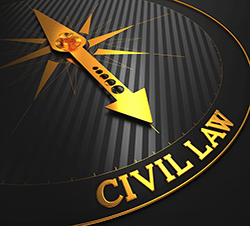Understanding Harris County Court Records
Understanding the various courts in Harris County can help people to navigate through the complicated process of looking up court case records. The Harris County Court Records website was created to assist the general public in understanding the county's judicial system and accessing publicly available records.
But how do you go about finding these records? And what do they tell you? Our resources will help guide you through the process of running a Harris County Texas Court Records Search. We'll explain the different courts in this county and the types of cases they handle. We'll also delve into why these records are public and the role they play in our society.
How to Search Harris County Court Records
Looking up Harris County Court Records is a straightforward process if you know where to begin. There are a few of ways to accomplish this. You can use state or county judicial website to access court case information. You can also use third party privately run databases. The method you choose will depend on your needs. And on the type of record you're looking for. Before you start your search, it's important to have some key information available. This includes either the court case number, the parties involved, or the name of the attorneys involved.
State and County Judicial Websites:
The Harris County District Clerk's website is a good starting point to search countywide. Their website provides access to various court records, from civil and criminal, to family and probate records. You will need to sign up with an account first and register you information before making any requests. Additionally there will be a fee for copies of any records, and additional fees for certified documents.
You can also use the state run resources, such as the Texas Judicial Branch website. This site provides links to various district and county clerks' offices. And the Texas Office of Court Administration offers additional resources for court records. One thing to keep in mind is not all records are digitized. So, online searches may not yield all the information you are looking for. If this is the case, try reaching out to the clerk of the courts for assistance.
Third Party Resources:
Since court records are considered public record, running a Harris County TX court records search can be done through non-government websites. The third party resources that offer these types of record searches are called public records sites. Look for one that specializes in public court case records and verify that it is reputable. Most of these resources will allow you to search anonymously, which means that no one will know you are looking them up. However, these resources are primarily for research and online reference only. If you need official copies of any documents then you will need to request these from the respective courthouse website.
The Different Courts of Harris County Texas
Harris County has a complex judicial system, it is one of the largest in the state of Texas. Understanding the framework of this judicial system can help streamline your search for court case information. Each of the various courthouses handles different types of cases. Here's a brief overview of the different courts in this county.
1). Family Court: This division handles family law matters including divorces, child custody, and adoption.
2). Civil Court: This division deals with non-criminal disputes. These include lawsuits, contract issues, property disputes, personal injury claims, and employment disputes.
3). District Court: This division is responsible for serious criminal cases and larger civil cases and specific family law matters.
4). Criminal Court: This division processes misdemeanor and felony cases that are criminal in nature. Civil cases are not tried here.
5). Justice Court: this Division hears smaller civil cases and small claims. It also handles minor criminal offenses such as criminal infractions or traffic violations
6). Probate Court: This division handles legal matters such as wills, estates, and guardianship issues.













